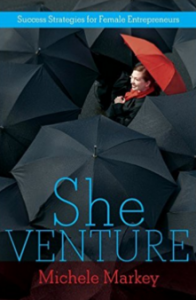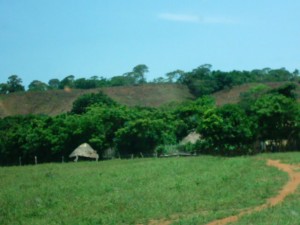My week-end business reading is She Venture: Success Strategies for Female Entrepreneurs, a book for women entrepreneurs authored by Michele Markey. Michele is Vice President of FastTrac, a global provider of educational programs that equip aspiring and established entrepreneurs with the business skills and insights, tools, resources, and networks to start and grow successful businesses. Kauffman FastTrac was created by the Kauffman Foundation, the largest foundation whose mission is to advance entrepreneurship as a key to growing economies and expanding human welfare. I completed two programs of FastTrac: FastTrac New Venture (for start-ups) and FastTrac Growth Venture (for more established businesses eager to scale). I participated in FastTrac when it was offered by New York City’s Department of Small Business Services. I cannot say enough good things about Fast Trac; I found it to be a very effective program to provide a blueprint for capacity building and business growth. I often refer to my Fast Trac workbooks and my FastTrac classmates have become a network of trusted peer advisors.
And I cannot say enough good things about Michele. She is passionate about increasing women’s participation in the global economy and serves as a speaker for the U.S. State Department’s program on women’s entrepreneurship. I really enjoyed this book. It is chock-full of helpful information and motivational messages. I should also add, in the interest of full disclosure, that my business, Prisere LLC, is part of the GEW 50, the 50 start-up businesses deemed to be the world’s most innovative by the Kauffman Foundation and celebrated during Global Entrepreneurship Week. I have also been a featured speaker on FastTrac’s webinar series for small business authors. So I share the enthusiasm for entrepreneurship that defines the Kauffman Foundation and the FastTrac program. I encourage you to read this book. It is always helpful to step back from the business and invest in continuing education and learning. I try to read one business book each week as part of that effort.

